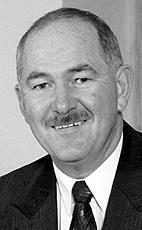Mr. Speaker, water is not only a necessity of life, it is essential in many ways to the quality of our lives.
Canadians are deeply concerned about the long term security and quality of our freshwater. One issue that has recently captured the attention of Canadians is the prospect of bulk water removals and export from Canadian watersheds.
The federal government responded to these concerns in February 1999 with a three part strategy to prohibit bulk water removal from major watersheds. The strategy recognizes that the most effective and certain way to protect Canada's waters is to take an environmental approach. Our goal is to shut off the tap at the source, not at the border.
I will take a moment to report on the progress which has been made by all governments and the International Joint Commission in advancing this strategy.
Last November the Minister of Foreign Affairs tabled Bill C-15, an act to amend the International Boundary Waters Treaty Act to prohibit bulk water removals from boundary waters, principally the Great Lakes. This is a key federal contribution to the protection of Canada's waters under the Canada-wide accord.
A second element of the strategy was a giant Canada-U.S. study by the IJC to examine water use in the Great Lakes basin. On March 15 the IJC presented its final report to the Canadian and U.S. governments on the protection of the waters of the Great Lakes.
The report is consistent and reinforces the federal strategy to prohibit bulk water removals, including recognition of the environmental basis for action, the need for intergovernmental co-operation in protecting waters, and the trade consistency of the federal approach.
The IJC concluded that international trade law does not prevent Canada and the U.S. from taking measures to protect their water resources and preserve the integrity of the Great Lakes basin.

